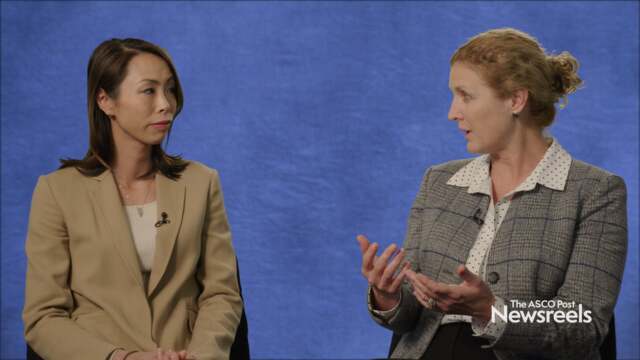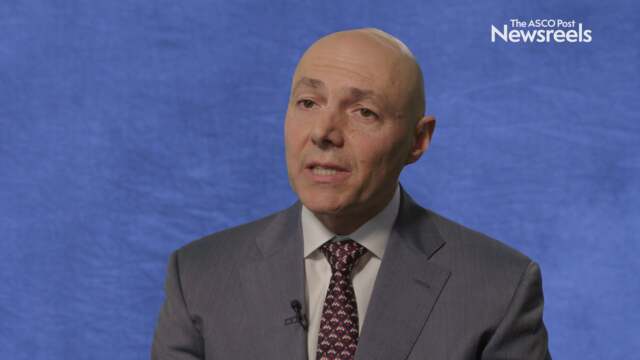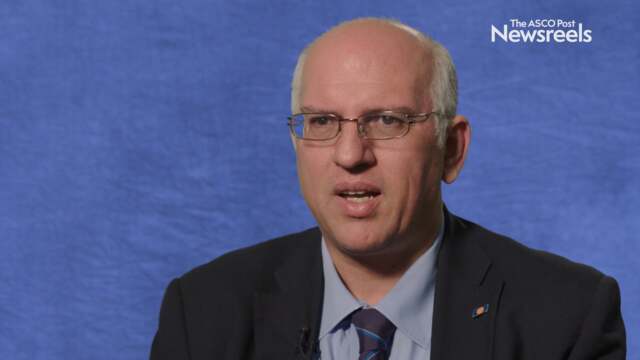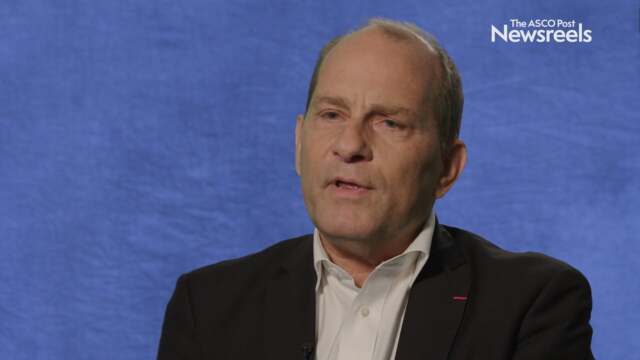Jeffrey S. Weber, MD, PhD, on Discontinuing Immunotherapy: When Is the Right Time?
ESMO 2018 Congress
Jeffrey S. Weber, MD, PhD, of the NYU Langone Perlmutter Cancer Center, discusses how long people with melanoma should be treated with PD-1 blockade and the data on remission rates.
Lisa A. Carey, MD, of the University of North Carolina, and Sherene Loi, MD, PhD, of the Peter MacCallum Cancer Centre, discuss the phase III IMpassion 130 trial testing the first-line combination of the PD-L1 inhibitor atezolizumab plus nab-paclitaxel in metastatic triple-negative breast cancer (Abstract LBA1_PR).
Ezra E.W. Cohen, MD, of the University of California, San Diego, discusses the effectiveness of anti–PD-1 therapy in patients with recurrent head and neck cancer and the studies that might help predict who will benefit, how to combine agents, and ways to reduce long-term toxicity.
Paolo A. Ascierto, MD, of Istituto Nazionale Tumori–Fondazione Pascale, discusses the breakthroughs in melanoma treatment and the challenges of managing toxicities, especially endocrine and neurologic side effects, which can require lifetime hormone replacement and may cause permanent dysfunction.
Alexander M.M. Eggermont, MD, PhD, of Gustave Roussy, discusses findings from recent adjuvant trials in high-risk melanoma, and what the NCCN Guidelines recommend in light of such data as results on dabrafenib plus trametinib vs anti–PD-1 treatments (nivolumab or pembrolizumab) and the new standard for wild-type disease.
Matthew J. Ellis, MB, BChir, PhD, of the Baylor College of Medicine, discusses data on endocrine therapy alone or in combination with targeted treatments for postmenopausal women with strongly ER-positive/HER2-negative tumors.





